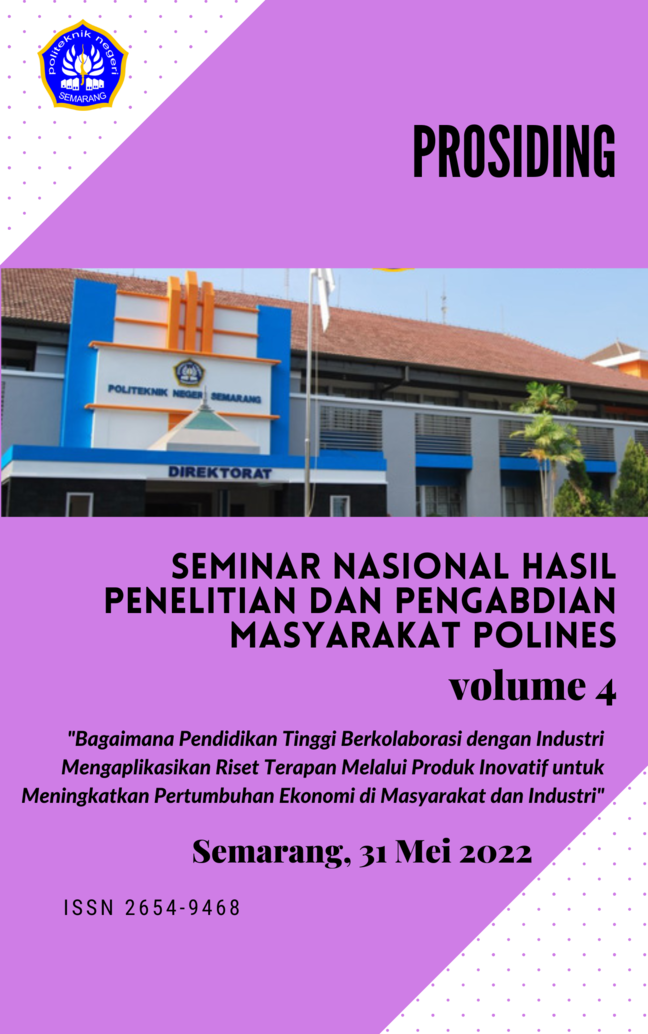MODEL PERAN KOMITMEN AFEKTIF DALAM MENINGKATKAN KINERJA DOSEN
Keywords:
organizational support, affective value, quality of academic culture, work spirituality, lecturer performanceAbstract
The purpose of this study was to analyze several antecedent variables that affect the performance of lecturers at the Semarang State Polytechnic. The population of this research is the lecturer of the State Polytechnic of Semrang. The sampling method used purposive sampling. Methods of data collection by distributing questionnaires, interviews, observation and literature study. The data were analyzed using the Structural Equation Modeling technique. Based on statistical results, six hypotheses have been proposed, five hypotheses show a significant positive effect on all relationships between variables and one hypothesis has no effect. The indirect effect of independent variables on lecturer performance resulted in two strategies, namely linking managerial support to lecturer performance through affective values and linking the quality of academic culture to lecturer performance through work spirituality. The dominant influence between variables is shown from the relationship between academic culture quality and group spirituality achievement.
References
Amorim Neto, R. d. C., Rodrigues, V. P., Stewart, D., Xiao, A., & Snyder, J. (2018). The influence of self-efficacy on entrepreneurial behavior among K-12 teachers. Teaching and Teacher Education, 72, 44-53. doi: 10.1016/j.tate.2018.02.012
Baum, J. R., & Locke, E. A. (2004). The relationship of entrepreneurial traits, skill, and motivation to subsequent venture growth. J Appl Psychol, 89(4), 587-598. doi: 10.1037/0021-9010.89.4.587
Boon, C., Den Hartog, D. N., & Lepak, D. P. (2019). A Systematic Review of Human Resource Management Systems and Their Measurement. Journal of Management, 45(6), 2498-2537. doi: 10.1177/0149206318818718
Bunner, J., Prem, R., & Korunka, C. (2019). How do safety engineers improve their job performance? The roles of influence tactics, expert power, and management support. Employee Relations: The International Journal, 42(2), 381-397. doi: 10.1108/er-04-2018-0120
Frey, B. S. (1993). Motivation as a limit to pricing. Journal of Economic Psychology, 14, 635-664.
Hair, J. F., Black, W. C., Babin, B. J., & Anderson, R. E. (2014). Multivariate Data Analysis. London: Pearson Education Limited.
Lusdiyanti, E. S. (2011). Analisis Pengaruh Dukungan Pimpinan Dan Dukungan Organisasi Pada Kinerja Dan Komitmen Afektif Karyawan PT Inka Madiun. Riset Manajemen & Akuntansi, 2(3).
Metria, K., & Riana, I. G. (2018). Pengaruh Dukungan Organisasi Terhadap Komitmen Organisasional Dan Kinerja Pegawai. E-Jurnal Ekonomi dan Bisnis, 7(9).
Murniasih, E., & Sudarma, K. (2016). Pengaruh Persepsi Dukungan Organisasi Dan Kompetensi Pada Kinerja Karyawan Dimediasi Komitmen Afektif. Management Analysis Journal, 5(1).
Sl̴tten, T. (2014). Determinants and effects of employeeӪs creative self-efficacy on innovative activities. International Journal of Quality and Service Sciences, 6(4), 326 - 347. doi: 10.1108/IJQSS-03-2013-0013
Stirpe, L., Profili, S., & Sammarra, A. (2021). Satisfaction with HR practices and employee performance: A moderated mediation model of engagement and health. European Management Journal. doi: 10.1016/j.emj.2021.06.003
Unsworth, K. (2001). Unpacking Creativity. The Academy of Management Review, 26(2), 289-297.






